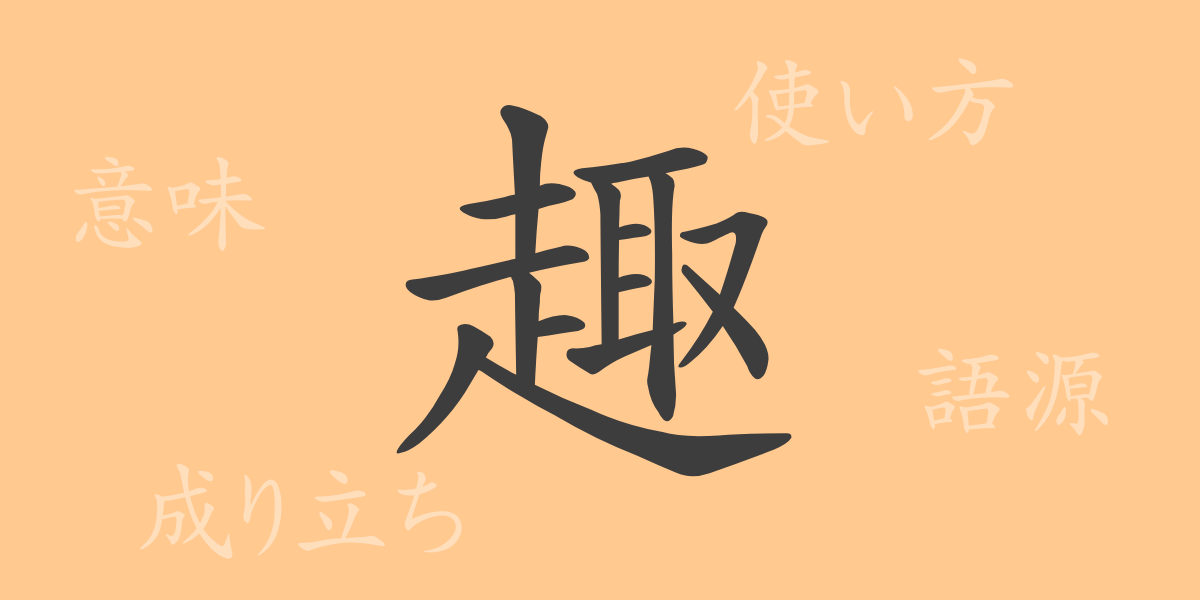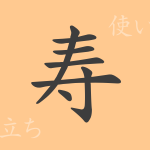In Japanese, there are many words that perfectly express emotions, landscapes, and human feelings. The kanji “趣(おもむき)” encapsulates deep meanings and its diverse usage exemplifies the delicacy of Japanese culture. This article delves into the charm of “趣(おもむき)”, exploring its origin, meanings, and modern usage.
Origin of 趣(おもむき) (Etymology)
The kanji “趣(おもむき)” originated in ancient China and has gradually evolved in meaning and form to the present day. Tracing its etymology, the character is composed of the part representing a moving foot “足(あし)” and the part meaning to stop “止(とめる)”. Originally, it meant “to change the way of walking”. This meaning shifted to indicate “direction or inclination of things” and eventually “taste and elegance”, which were then adopted into Japanese.
Meanings and Usage of 趣(おもむき)
In modern Japanese, “趣(おもむき)” commonly means “leading in a specific direction” or “tendency of things”, as well as “elegance” or “taste” that conveys a sense of aesthetic pleasure or enjoyment. When used in expressions like “趣(おもむき)がある”, it signifies the unique charm or profoundness of the subject.
Readings, Stroke Count, and Radical of 趣(おもむき)
The kanji “趣(おもむき)” is deeply connected with Japanese calligraphy and culture in both form and meaning.
- Readings: The on’yomi (音読み) is “シュ”, and the kun’yomi (訓読み) is “おもむき” or “おもむ.く”.
- Stroke count: 15 strokes.
- Radical: The radical is 走部(そうぶ, はしるへん), which relates to running.
Idioms, Phrases, and Proverbs Using 趣(おもむき)
There are many idioms, phrases, and proverbs in Japanese that include “趣(おもむき)”, each with unique nuances. For instance, “趣向(しゅこう)を凝(こ)らす” means “to come up with new ideas with ingenuity” and is commonly used in a culture that values creativity. “趣味(しゅみ)が合う” means “to have similar tastes” and is useful in expressing relationships between people. Additionally, “風趣(ふうしゅ)を解(かい)する” means “to understand and enjoy elegance”, often used when appreciating traditional Japanese arts or natural beauty.
Conclusion on 趣(おもむき)
The meaning embedded in the kanji “趣(おもむき)” reflects the depth of the Japanese language. It mirrors the Japanese spirit of valuing culture, arts, and nature, and each usage of the character reveals a unique perspective on life. Understanding such kanji while learning Japanese connects one to the culture and philosophy behind the language. Through “趣(おもむき)”, rediscover the beauty of the Japanese language.

























